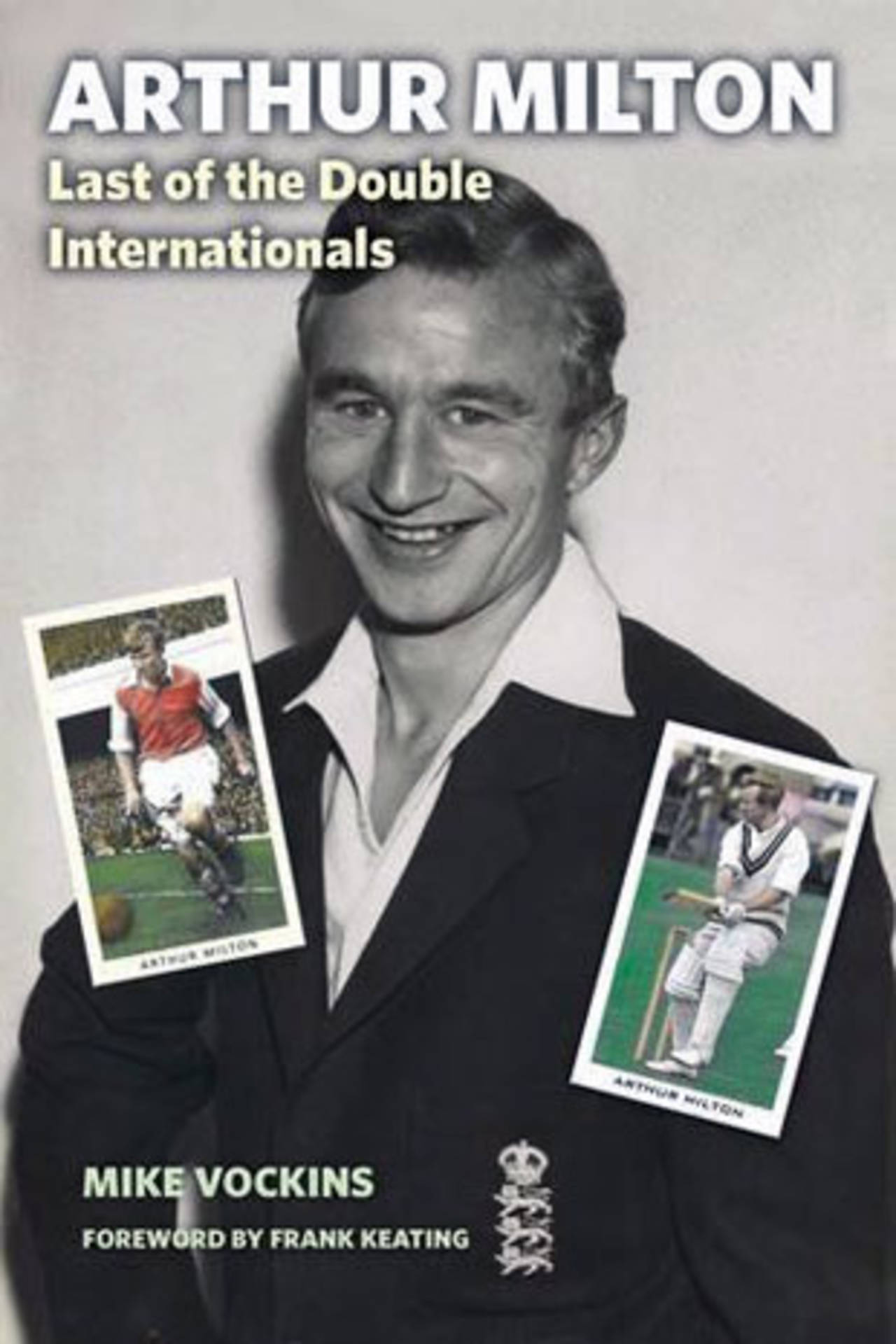The last of his kind
The warm and engaging life story of a man who accomplished the rare feat of playing cricket and football for England
Martin Williamson
21-Aug-2011

Getty Images
Arthur Milton occupies a place in sporting history that will never be usurped: he was the last of the 12 men who played cricket and football for England.
Milton's sporting career, which started in 1948 and lasted through to his retirement from Gloucestershire in 1974, began in an era when there was still a distinct divide between the summer and winter sporting seasons, and ended when playing both sports professionally was a dying concept. It was an indication of the importance of cricket in post-war England that Arsenal, one of the leading sides, happily allowed him to play for his county when the seasons did overlap.
Milton's one England football international came in 1951, after he had made only 12 league appearances for Arsenal (a largely forgettable draw at home to Austria), but he was good enough to win a championship medal in 1952-53.
His record for England at cricket was slightly better; he scored a hundred in his first Test innings, against New Zealand in 1958, and in so doing became the first player to be on the field for every ball of a Test, and toured Australia that winter. But he failed to pass 50 in his remaining five matches, and by 1959 he had been dropped.
Thereafter, he continued to ply his trade for his beloved Gloucestershire with great success. Although he officially retired in 1970, he kept being recalled until he quietly called time. He was an excellent close catcher - he equalled the world record for catches in one game - and an undemonstrative but very effective batsman. In retirement he coached for a time - but as he admitted, he did not believe in coaching.
He was just short of being top-class in both his sports, and there is a sense that he was the kind of sportsman who was more comfortable in the familiar surroundings of his club or county rather than in the glare of the bigger stage.
Oddly, he appears to have been at his happiest when he became a postman, serving the public and getting out and about in his beloved countryside. He also saw more of his family. Having missed seeing his boys grow up because of the relentless grind of the county circuit produced some rare bitterness.
There is also an underlying sense that Milton, for all his sporting success, might have been happier in the world of academia. Clearly an intelligent man, he eschewed university for sport, and that seems to have been a matter of regret as he got older - not that such a delightful man would have ever let such a thing turn him resentful. He gained some solace when he was awarded an honorary degree by Bristol University late in his life.
Mike Vockins has succeeded in getting a real flavour of Milton across in his book, even if he was hampered by the unfortunate death of his subject during the writing of it, and clearly he bonded with a genuinely decent man. Anyone expecting a warts-and-all book - not that they should, given the subject matter - will be disappointed, but Milton was not that kind of man.
This is a warm and engaging look back on the life of the kind of sportsman who no longer exists, and in doing provides insights into a long-forgotten world.
Arthur Milton: Last of the Double Internationals
Mike Vockins
Sportsbooks; £18.99

Mike Vockins
Sportsbooks; £18.99
Martin Williamson is executive editor of ESPNcricinfo and managing editor of ESPN Digital Media in Europe, the Middle East and Africa